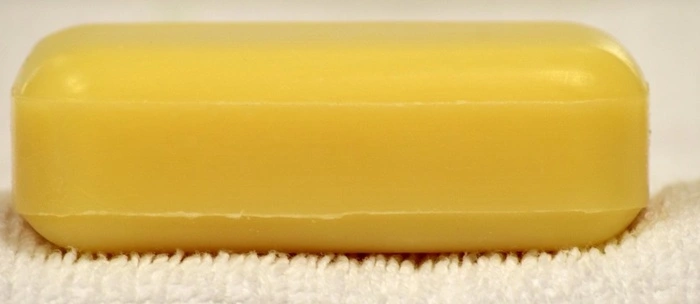 Doodle Information Portal
Doodle Information Portal

Disadvantages of Handmade Soap
Author: Balaji Shankar, Jun 1, 2024
In this article we will see the disadvantages of handmade soaps and how to effectively counter them.
1. Handmade Soap is Expensive
In general, handmade soaps are at least double the price of off-the-shelf commercial soaps. There are many good reasons behind this. Let's look at them:
1a. Cost of Ingredients
Handmade soaps may use natural/organic ingredients which immediately increases the cost of production. For example most commercial soaps are produced using synthetic stearic acid as the fatty acid for saponification. The wholesale price of stearic acid is in the range of 40 Rs a kilo. Handmade soaps use organic coconut oil or at least cold pressed coconut oil which costs upward of 300 Rs a kilo.
Similarly, commercial soaps use synthetic fragrances which are much cheaper than plant based essential oils used in handmade soaps. For example a good quality fragrance oil may cost 900 Rs a litre while something like cedarwood or citronella essential oil costs around 2000 Rs a litre.
1b. Cost of Skilled Labor
Handmade soaps require highly skilled soap-makers to successfully produce a bar of soap. It borders on the realm of art & craft! Further, good handmade soaps can only be produced in small batches and takes a lot of time.
Whereas, commercial soaps are produced in mass numbers by machines; it is pretty much like Charlie Chaplin's Modern Times! Every aesthetic and value is thrown to the winds for the sake of profits.
1c. Cost of Distribution
Handmade soap is sold mostly by word of mouth or farmer markets or through ecommerce - the cost of delivery is pretty high per individual soap.
Solution: Most soaps in India are made of coconut oil. If it is made of organic coconut oil, you should be willing to pay around 1000 rupees per kilo (100g - Rs. 100). If it is very high (like 3000 rupees per kg) then you are not getting value for your money in our opinion.
2. Handmade soaps are not scalable
By their very nature, handmade soaps can only be produced in small quantities and by hand. This means that they cannot be scaled immediately on a need basis. So if everyone wants to consume handmade soaps, we may need 0.5 to 1% of our population to be soap-makers! So it is likely that handmade soaps will remain in the realm of exotic or exclusive products for the near future.
3. Handmade soap production is not regulated
In India, handmade soaps do not need any registration or certification as it is not a food product. This makes this small scale industry an un-regulated industry. So there is a lot of room for foul play or using cheap raw materials etc. The discerning buyer should pay a lot of attention to the ingredients and also do a lot of sampling before shopping.
4. Handmade Soaps are prone to adulteration
There is no hard-and-fast recipe for making a soap. You can combine caustic soda solution with pig fat and make an ultra cheap soap. You can also combine caustic soda solution with virgin coconut oil, extra virgin olive oil and add bergamot or ylang ylang essential oil and French pink clay to produce a really exotic and expensive soap. Because there is no way for the normal customer to identify the ingredients in a soap, it is prone to adulteration.
5. Handmade soaps have a lesser shelf-life
Handmade soaps are generally free from chemical preservatives (which tend to harm the skin). Compared to commercial soaps, which have SLS, paraben and other preservatives, handmade soaps may not last long in the shelf.
But a well made handmade soap can last 2 years if stored away from moisture
How to overcome these disadvantages?
1. Like all products, do your due-diligence. Study the vendor; see if he is credible; see his return policy and delivery policy; see if he has a sample pack costing less.
2. Study the ingredients carefully. Ask question about preservatives and artificial foaming agents like SLS.
3. Identify your total cost for getting 100g of soap to your door step. See if you are getting value for money.
4. Ask if your soap maker is using fragrance oils or essential oils.
5. Above all, do a patch test. Buy a single soap as sample and use it and if you are convinced then go for it! After all it may save your skin from several problems for the rest of your life!
At Doodle Soapery we make the finest organic, cold process, natural handmade soaps at an affordable price of Rs 95 for 100g.

Doodle Information Portal
We publish unbiased information on handmade soap, its benefits, disadvantages, how to choose your soap, various flavours of soap, their benefits and other useful information on handmade natural soaps.
We also publish well-researched informational articles on skin-care in general.
Also Read...
-
 Frequently asked Questions about Handmade Soap
Frequently asked Questions about Handmade Soap
Common questions and doubts regrading handmade soaps -
 Handmade Soap Business
Handmade Soap Business
Discussion about handmade soap making as a busiess